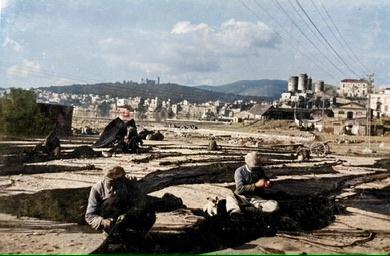How did Ramón Llull’s philosophical background influence his approach to missionary work in Mallorca?
Similar Topics
ramón llull philosophy
missionary work mallorca
faith and reason
aristotelian philosophy
theological dialogue
interreligious engagement
systematic truth
ars method
Ramón Llull’s philosophical background deeply shaped his approach to missionary work in Mallorca, blending rigorous intellectual inquiry with a passionate commitment to spreading Christian teachings. Llull was a medieval philosopher, theologian, and logician whose works sought to reconcile faith and reason through systematic methods. His education in philosophy and theology, combined with his mastery of languages and logical structures, allowed him to develop an innovative approach to missionary work that went beyond conventional preaching. Rather than relying solely on emotional or doctrinal arguments, Llull employed reasoned dialogue about theological concepts, aiming to engage Muslims and Jews on an intellectual level.
This rational methodology was grounded in Llull’s belief that truth could be systematically demonstrated and communicated to others through logical arguments and persuasive discourse. His background in Aristotelian philosophy and scholastic tradition provided the tools to create his “Ars,” a method intended to uncover universal truths and help people arrive at knowledge of God through reason. In Mallorca, where diverse religious communities coexisted, Llull’s approach was particularly significant. He sought to bridge cultural and religious divides by using his philosophical insights to foster understanding and conversion through respectful debate, rather than force or dogma.
Llull’s intellectual rigor also manifested in his dedication to producing texts and manuals designed to facilitate this dialogue, reflecting his conviction that philosophical and theological discourse could be accessible and transformative. His missionary efforts were marked by an extraordinary optimism about the power of reasoned faith to overcome religious differences peacefully. Thus, his philosophical background was not merely an academic foundation but an essential element that shaped his compassionate, reasoned, and innovative strategy for missionary work in Mallorca, grounded in dialogue, respect, and the pursuit of truth.
This rational methodology was grounded in Llull’s belief that truth could be systematically demonstrated and communicated to others through logical arguments and persuasive discourse. His background in Aristotelian philosophy and scholastic tradition provided the tools to create his “Ars,” a method intended to uncover universal truths and help people arrive at knowledge of God through reason. In Mallorca, where diverse religious communities coexisted, Llull’s approach was particularly significant. He sought to bridge cultural and religious divides by using his philosophical insights to foster understanding and conversion through respectful debate, rather than force or dogma.
Llull’s intellectual rigor also manifested in his dedication to producing texts and manuals designed to facilitate this dialogue, reflecting his conviction that philosophical and theological discourse could be accessible and transformative. His missionary efforts were marked by an extraordinary optimism about the power of reasoned faith to overcome religious differences peacefully. Thus, his philosophical background was not merely an academic foundation but an essential element that shaped his compassionate, reasoned, and innovative strategy for missionary work in Mallorca, grounded in dialogue, respect, and the pursuit of truth.
🧩 Related Questions
Related Question
What are the noise and light regulations travelers should follow while birdwatching at night in Mallorca?
Related Question
How do the educational initiatives in Mallorca contribute to the preservation of its culture?
Related Question
What wildlife or plant species might travelers encounter when hiking near the bull figure area?
